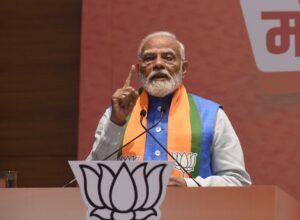Portuguese town celebrates Islamic heritage amid growing intolerance
Mertola showcases Islamic cultural diversity through music, workshops, and exhibitions
MERTOLA, Portugal (MNTV) — Mertola, a picturesque town nestled on the Guadiana River in southern Portugal, hosts the Islamic Festival of Mertola.
This annual event highlights the town’s rich Islamic heritage, showcasing music, art, and crafts that reflect its history under Muslim rule.
Mertola, which was once a vibrant part of al-Andalus, has long been a symbol of coexistence between Muslims, Christians, and Jews.
While under Muslim rule from the 8th to 13th centuries, the town flourished, with monuments reflecting its Islamic past still standing today.
Among these is the Church of Nossa Senhora da Anunciacao, which was once a mosque, blending both Islamic and Christian architecture.
The church’s mihrab, traditionally a feature of mosques, is now behind the altar, with some Christian worshippers still praying facing Mecca.
The Islamic Festival serves as a reminder of this coexistence, which thrived in southern Portugal despite later religious conflicts.
Portugal’s Islamic heritage, however, was largely forgotten following the 1496 expulsion of Muslims and Jews and further erased under the Christian nationalist dictatorship (1933-1974).
During this period, Muslims were often portrayed as the enemy, and their cultural traces were removed from public memory.
Recent archaeological work, particularly in Mertola, has helped reframe this narrative.
Researchers have found evidence suggesting that Islam spread through Portugal via trade and peaceful conversions rather than violent conquests.
This new understanding challenges the traditional portrayal of Muslims as outsiders and emphasizes the interconnectedness between Mediterranean cultures, especially between southern Portugal and North Africa.
In Portuguese schools, the five centuries of Muslim rule are often given limited attention in history lessons.
Textbooks tend to focus more on the Christian “reconquest,” a period where Christian rulers, with the aid of crusaders, reclaimed territories from Muslim control in the 13th century.
This emphasis on the “reconquest” frames Portugal’s history in a way that downplays the significance of its Islamic past.
The initiatives of Portuguese writers like Adalberto Alves counters ‘otherization’ of Muslims.
Alves initially began compiling a list of Portuguese words derived from Arabic out of curiosity.
This interest evolved into a decade-long project, resulting in the 2013 publication of a comprehensive dictionary containing over 19,000 Portuguese words and expressions with Arabic origins.
Today, Mertola celebrates its Islamic roots with pride.
Local officials emphasize the importance of cultural preservation and the town’s role in fostering collaboration between Mediterranean nations.
The town aims to demonstrate the enduring cultural ties between different peoples and promote the message that peaceful coexistence is possible, even in times of rising intolerance worldwide.
Today, Muslims make up less than 0.5% of Portugal’s population of 11 million, and few are aware that, in the past, they once comprised a much larger portion of the population.










